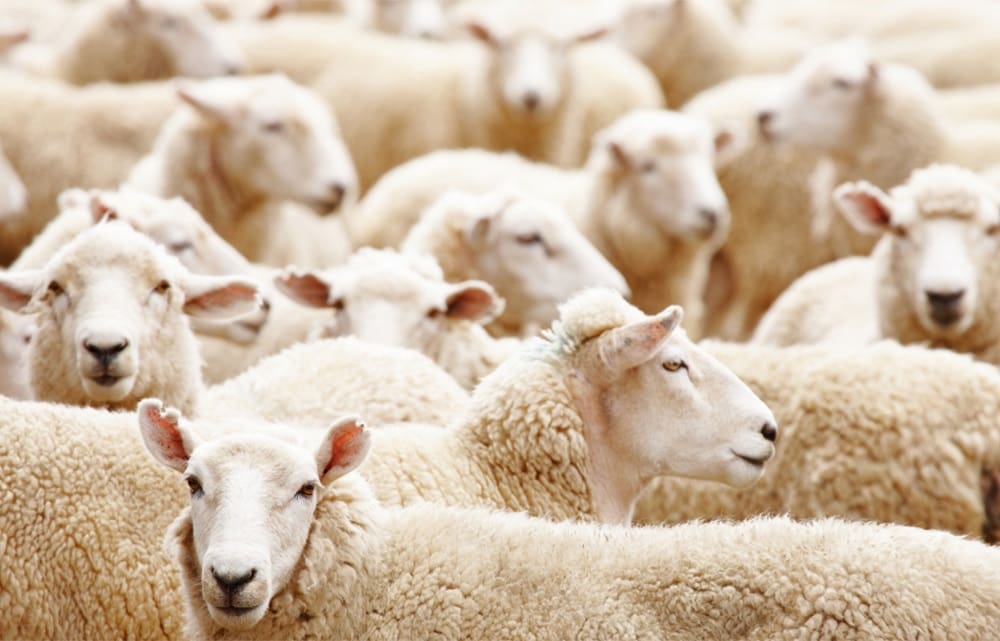
A two-year UNE-led research project will investigate feeding methane-reducing supplements to sheep.
RESEARCH to define how methane-reducing supplements can be fed to sheep efficiently in paddocks is aimed at helping Australia’s flocks achieve carbon neutrality.
The University of New Englandwill lead the ground-breaking research collaboration, funded by a $1.9 million grant from the Australian Government’s Methane Reduction in Livestock Program.
The project in partnership with the Department of Primary Industries and Regions, South Australia, the University of Western Australia, Feedworks and Australian Wool Innovation, will trial the use of automated feeders designed to deliver methane-reducing additives to sheep.
Lead researcher and head of UNE’s School of Environmental and Rural Science, Professor Julius Van der Werf said one of the biggest problems the grazing sheep industry faced is a lack of equipment designed to regularly deliver anti-methanogenic supplements to animals on pasture without significantly increasing labour input.
“The automated feeders being tested in this study will help fill this gap.”
Professor Van der Werf said the feeders work by identifying individual animals using electronic ear tags and feeding them a pre-set amount of supplementary feed.
“This means graziers will no longer be required to manually monitor doses and feed grazing sheep supplements that contain the required feed additives, which will significantly reduce human labour input and cost,” he said.
“We will look at this stage at various methane mitigating additives, and test their efficacy.
“So these trials are meant to look at the most effective additives and how they can be administered in commercial production environments,” he said.
“For a farm to become carbon neutral, there will be many factors that play a role at the whole system level, including feeding strategy, pasture management, tree coverage.
“Many different project will contribute to a sustainable solution.”
Professor Van der Werf said by making the feed additives more accessible to sheep graziers, the potential methane reduction will be staggering.
“The higher the uptake of this technology by sheep graziers, the higher the proportion of sheep nationally that are receiving the anti-methanogenic additives and hence the higher methane reduction.
“For example, assuming supplementation with a seaweed derivative can lead to a reduction of enteric methane emissions in grazing sheep by 50 percent, so if 80 percent of sheep farmers in Australia invest in these feeders and use them, then we are likely to see a 40 percent national reduction in methane emission from sheep,” he said.
“So, the actual contribution of these feeders will be a combined function of the anti-methanogenic additives being used on them, the proportion of farmers adopting them and how consistently the farmers use them.”
Professor Van der Werf said feed additives can be pretty effective in the short term, possibly reducing methane emissions by more than 50pc with sufficient uptake, but at a fair cost.
“In the long term, there are also other solutions, including breeding for more methane efficient sheep.
“And again, many other factors that contribute to that whole farm picture.”
The collaboration is one of several research projects being led by UNE to reduce methane emissions produced by livestock. Professor Van der Werf said the MERiL grant solidifies UNE’s expertise and reputation in this area.
“UNE is leading this work and I think this is another demonstration of a comprehensive approach to have a real impact with introducing new technologies to reduce enteric methane emission from both cattle and sheep.
“Our scientists and technical experts are well known within Australia and internationally for this kind of work and this is an area we continue to expand our capacity on.”
Work on the project is set to get underway in the coming months, and will be conducted on UNE’s farms during the first year of the study.
For more information about the other projects that received Stage 3 Round 1 MERiL funding click here.
Source – UNE.

HAVE YOUR SAY